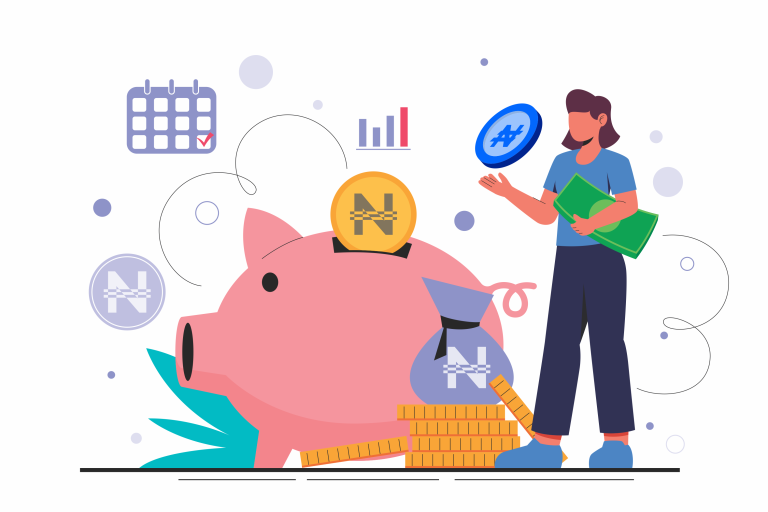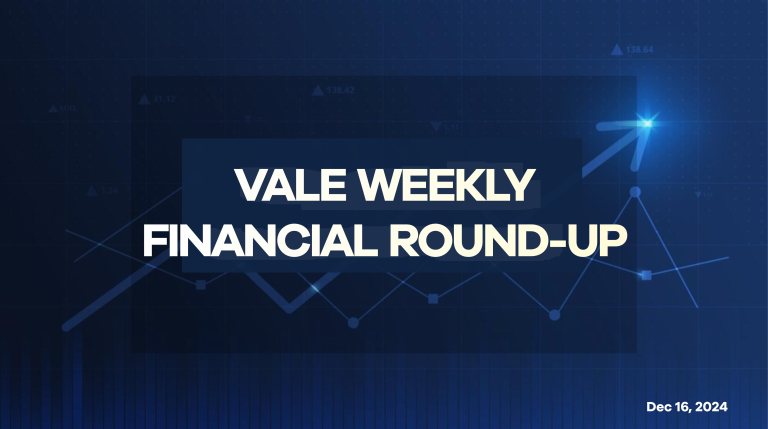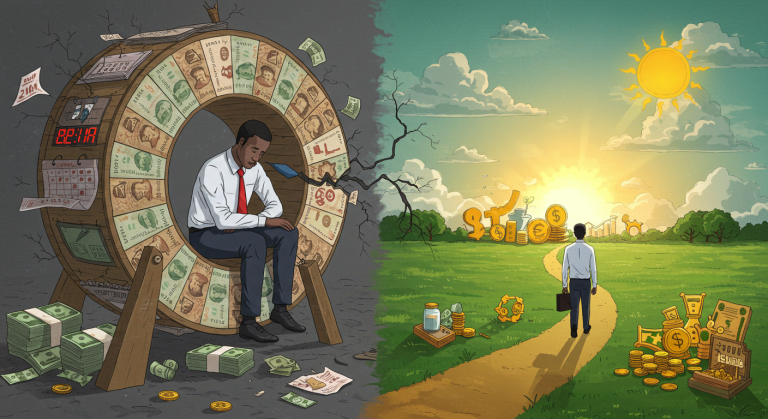The Steady Way to Build Wealth
When we think of wealth, most people picture those who made it big: tech founders, real estate moguls, or people who inherited fortunes. But truthfully, not everyone becomes wealthy by doing something grand like building a tech startup or being a NEPO baby. Some people build wealth quietly, through patience, consistency, and a plan that actually works.
The steady way to build wealth doesn’t rely on luck; it depends on habits, the kind you build and stick with even when it doesn’t feel glamorous. It’s about saving before spending, investing in what you understand, and choosing discipline over impulse. It’s not about how fast you grow your money but how steadily you do it. The people who quietly become financially free don’t chase shortcuts; they build systems, systems that work.
Many people overlook this path because it doesn’t look exciting. It doesn’t come with loud wins or quick returns. But if you look closely, you’ll find that some of the most financially stable people you know didn’t get there through shortcuts. They simply learned to manage what they had, avoided unnecessary debt, and followed a pace that worked for them, a pace built on patience, not pressure.
Building wealth this way takes time. It’s not an overnight success. It’s the consistent actions that add up. And part of that is understanding that financial freedom isn’t a race; it’s a journey that requires showing up even when progress feels slow. The more consistent you are, the closer you get to the kind of stability that gives you peace of mind.
The beauty of this kind of wealth building lies in the small but intentional choices made over and over again. It’s in the person who saves every month, even when it’s tough, or the one who says no to impulse buys because there’s a bigger goal in mind.
If you need a little motivation to stay on track, Vale’s ongoing Millionaire Challenge is a great place to start. It’s not luck but commitment. The idea is simple: keep saving, keep growing, earn interest, and watch how steady actions can move you toward your own millionaire goal.
You don’t have to rush your journey. Just keep showing up for your goals and let time work its magic. All you need is patience, consistency, discipline, and the belief that steady progress always pays off in the end.
NOW TO THE NEWS
Naira Records Strongest Performance Since 2024, Closes Week at ₦1,458/$1
The Naira strengthened notably over the past week, closing at ₦1,458 per US dollar on Friday, its best performance since 2024. This improvement reflects the Central Bank of Nigeria’s (CBN) continued efforts to stabilize the foreign exchange market and maintain recent monetary gains.
According to CBN data, the Naira opened the week at ₦1,464/$1 on Monday and briefly weakened to ₦1,472/$1 on Tuesday. However, it rebounded midweek, appreciating to ₦1,469/$1 on Wednesday and ₦1,464/$1 on Thursday, before ending the week stronger at ₦1,458/$1 on Friday.
In the parallel market, the Naira traded between ₦1,495 and ₦1,505 per dollar, showing only a narrow margin compared to the official rate. This limited gap suggests reduced arbitrage opportunities between the official and black-market exchange rates.
Week-on-week, the Naira appreciated by ₦11 or about 1.1% from the previous week’s closing rate of ₦1,469/$1. The data indicates gradual recovery in the currency’s performance, supported by the CBN’s active measures to strengthen liquidity and stabilize the forex environment.
CBN Adopts AI for Monetary Policy Forecasting – Cardoso
The Central Bank of Nigeria (CBN) has adopted Artificial Intelligence (AI) in its monetary policy, particularly for forecasting, highlighting the bank’s recognition of technology’s growing role in economic management. CBN Governor Yemi Cardoso revealed this during a fireside chat at the London Business School, moderated by Professor Hélène Rey.
Cardoso also addressed questions on cryptocurrency, noting that the CBN understands its importance to young Nigerians and will soon release a statement in that regard. On interest rates, he acknowledged that they remain high but said they are expected to adjust as the situation develops. He added that with the disappearance of arbitrage, banks will now focus more on business generation. On recapitalization, he stated that banks unable to meet their license requirements may merge or downgrade, stressing that enough time has been given and there is no reason for panic or an extension.
Speaking on the bond market, Cardoso clarified that there has been no takeover, explaining that the CBN’s approach aims to promote transparency and price discovery, similar to the foreign exchange market. He admitted that several reforms should have been implemented a decade ago, noting that the delay worsened the current situation. He added that the fuel subsidy was unsustainable and contributed to the forex crisis, emphasizing that his primary responsibility is to maintain stability in the foreign exchange market and prices, not necessarily to drive growth.
Nigeria’s Public Debt Rises to ₦152.4tn in Q2 2025 – DMO
Nigeria’s total public debt rose to ₦152.40 trillion as of June 30, 2025, according to data released by the Debt Management Office (DMO). This marks an increase of ₦3.01 trillion from ₦149.39 trillion at the end of March 2025. In dollar terms, the debt profile grew from $97.24 billion to $99.66 billion, reflecting a 2.49 per cent rise in three months, underscoring the government’s continued reliance on borrowing to fund fiscal deficits.
The World Bank remained the country’s largest external creditor with $18.04 billion, accounting for about 38 per cent of total foreign debt. Multilateral lenders collectively held $23.19 billion, while bilateral loans stood at $6.20 billion, led by China’s Export-Import Bank with $4.91 billion. Commercial borrowings, mainly Eurobonds, amounted to $17.32 billion, representing 36.9 per cent of total external debt.
On the domestic front, debt rose to ₦80.55 trillion in June from ₦78.76 trillion in March, an increase of ₦1.79 trillion or 2.27 per cent. Federal Government bonds dominated with ₦60.65 trillion, including ₦36.52 trillion in naira bonds, ₦22.72 trillion in securitized Ways and Means advances from the CBN, and ₦1.40 trillion in dollar bonds. Other instruments included Treasury bills, Sukuk, savings, green bonds, and promissory notes.
The data also reported that the Federal Government accounted for ₦141.08 trillion (92.6 per cent) of the total public debt, while the 36 states and the FCT owed ₦11.32 trillion (7.4 per cent).
SEC Reaffirms Commitment to Technology Driven Capital Market – Agama
The Director-General of the Securities and Exchange Commission (SEC), Emomotimi Agama, has reaffirmed the Commission’s commitment to leveraging technology to boost investor confidence and make Nigeria’s capital market globally competitive.
Speaking during the 2025 Customer Service Week celebration in Abuja, themed “Building the Market of the Future, One Interaction at a Time,” Agama said the SEC was embracing digital innovation to enhance transparency, efficiency, and accessibility in market operations.
He noted that the Commission had made significant progress through the digitization of internal processes, deployment of new online service portals, and improved engagement with market stakeholders. However, he stressed that while technology improves efficiency, human interaction remains vital to maintaining trust and providing quality service.
Agama pledged continued investment in digital infrastructure, staff training, and tools to empower frontline officers. He also commended customer-facing staff as the “true heroes” of the market and reaffirmed the SEC’s vision to build a technology-driven capital market anchored on trust, efficiency, and world-class service delivery.


